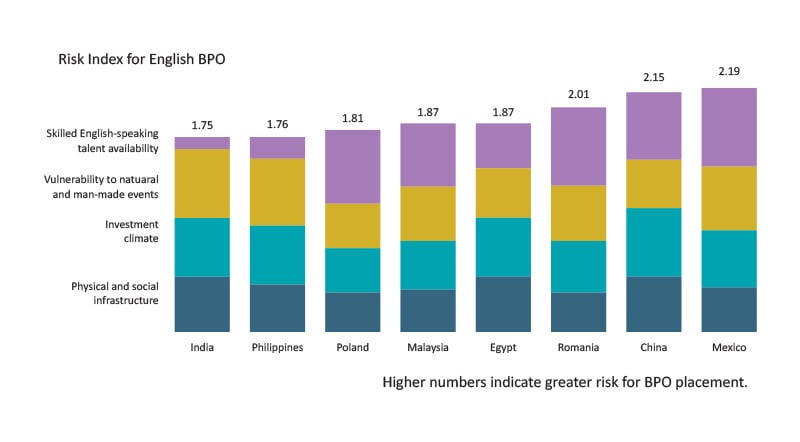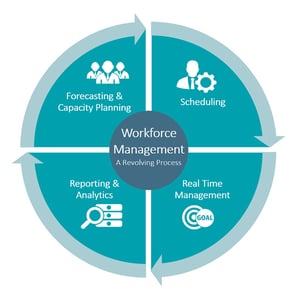Delivering Efficiencies & Cost Savings [UPDATED 01/2021]
A wide variety of industries have discovered the benefits of offshoring, and the healthcare industry is among them. But before your company decides to develop an offshore location for some of its services, it is critical to do the necessary due diligence. Research and planning will help you determine the best location to suit your company’s needs and its capacity to deliver the efficiencies you seek.
Prior to establishing an offshore business process center, conduct a comprehensive study to determine the investment required, the feasibility of a successful venture, the offshoring benefits you desire, and any potential risks. It is also critical to consider any unique needs of your industry.
As a specialized healthcare technology and services company providing solutions to the Medicare markets, Convey Health Solution’s (Convey) due diligence included making sure it could meet the Centers for Medicare and Medicaid Services’ (CMS) offshore requisites. (Medicare Advantage health plans must provide specific information related to their offshore contractors and attest that they have taken the necessary measures to mitigate risks associated with sharing beneficiary protected health information or PHI.)
As you identify offshore sites, ask these questions:
-
-
- Which countries are among the most favorable for offshoring and why?
- What offshore partner offers your company the greatest opportunity for success?
-
-
-
- What is the country’s literacy rate?
- Is language proficiency high?
- Is there sufficient talent to support your service needs?
- Does the workforce have experience working with foreign countries and their customers?
- What are the preferred destinations among American companies, and why?
-

Once Convey had scrutinized potential offshoring opportunities, it identified Manila, Philippines, as the best location for its business process center. Many factors led Convey to this decision. Manila was a well-established location for business process outsourcing (BPO) that had earned a low risk index among the top Digital Nations. (In the 2020 Tholons Services Globalization Index, the Philippines was rated sixth among the top 20 “Digital Nations”; Manila was ranked fourth of the top 20 “Super Cities.”)
The Philippines also has one of the highest literacy rates in the world at 97%, and more than half a million new college graduates every year. These attributes have been instrumental to Convey’s offshoring success.
Beneficial Offshoring Demands Skilled Human Resources & Workforce Management
Before your company procures an offshore location, it is essential to evaluate the experience and skill of your human resources team. The role of human resources in this undertaking cannot be overstated. Developing an offshore work site requires an understanding of the culture and customs of a particular country and a customized approach to recruitment, orientation, and engagement. For example, once Convey’s new hires in Manila complete orientation and compliance training, their first week of employment is dedicated to learning about US culture, the US healthcare delivery system, and Medicare 101.
Convey also employs a revolving workforce management process with clearly defined roles and responsibilities that allow for:
-
-
- Forecasting and capacity planning:

Determine staffing requirements and plan for ramping up or down as needed. - Scheduling:
Mitigate staffing gaps by analyzing key performance indicator trends and recommending action plans. - Reporting and analytics:
Create workforce management reports based on operations’ requirements. - Real-time management:
Ensure Service Level Agreements are achieved, absenteeism is tracked.
- Forecasting and capacity planning:
-
These processes result in improved operational efficiency.
The Benefits of Offshoring Operations
While the development of a BPO takes time, the potential benefits and operational efficiencies are well worth the effort. These offshoring benefits include:
-
-
- Access to 24/7 service.
When it is the middle of the night in the U.S., it may be the middle of the day across the world, making it possible to operate around-the-clock. The U.S. team can assign unfinished tasks to the offshore team, providing the opportunity to complete a project overnight. - Cost savings.
Offshore labor costs are typically less expensive than state-side salaries and benefits. The cost of utilities, infrastructure, and materials are also lower in developing countries like the Philippines and India. - Business continuity.
When health plan office operations in the U.S. are affected by a major weather event, such as a hurricane or blizzard, business can come to a screeching halt. Having an offshore site makes it possible to provide uninterrupted services to plan beneficiaries. - Availability of skilled labor.
Offshoring locations, such as the Philippines and India, allow companies to connect with a rich pool of talent in terms of English language proficiency, advanced degrees, and professional skills.
- Access to 24/7 service.
-
To learn more about Convey’s offshoring benefits, successes, and services, please visit conveyhealthsolutions.com or call us at 800-559-9358.







